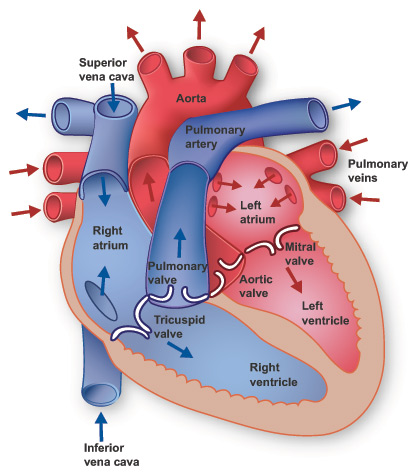How to control high blood pressure and risks for heart attack?
Introduction
High blood pressure is a serious condition that can cause heart attacks, strokes and other health problems. The good news is that there are ways to control your blood pressure levels and prevent these risks.
High blood pressure is a leading risk factor for heart attack, stroke, and kidney failure.
High blood pressure is a leading risk factor for heart attack, stroke and kidney failure. It can lead to heart failure, heart attack or stroke. It also increases your risk of kidney disease and death from any cause.
High blood pressure (hypertension) occurs when the walls of your blood vessels are dilated or widened because of an increase in blood volume (hypertension). This makes it harder for the heart muscle to pump enough oxygen-rich plasma out into the body’s tissues at a steady rate. The result is increased strain on other organs as they try to compensate for this overload by working harder themselves – such as muscles becoming weaker or kidneys not functioning properly due to inadequate drainage from them - which causes more stress on those organs too!
Many factors can contribute to high blood pressure.
High blood pressure is a common condition that can lead to stroke and heart attack. High blood pressure is defined as systolic pressure (the top number) greater than or equal to 120 mm Hg and diastolic pressure (bottom number) less than 80 mm Hg, or both systolic and diastolic pressures over 140/90 mg/dL.
The following factors may contribute to high blood pressure:
Lifestyle factors such as diet and exercise may cause or prevent high blood pressure. A healthy lifestyle helps control your weight and improves muscle strength, which helps lower your risk for heart disease by reducing stress on the heart muscle.
Genetics also play a large role in determining whether someone will develop high blood pressure later in life. Some people have genes that make them more likely than others do not experience cardiac issues due to having been born with certain conditions such as familial hypercholesterolemia or familial dysautonomia.
Age also contributes; older adults are at higher risk because they tend not be able to handle regular exercise routines well enough as seniors so they would need additional support from their doctors if they want some kind of success at keeping up with their goals.
Race/ethnicity plays into how quickly someone develops high cholesterol levels (known commonly as hyperlipidemia). People who identify themselves racially/ethnically differently could find themselves having different experiences when it comes down tho
If you have high blood pressure, you can take steps to decrease your risk of developing other health problems.
If you have high blood pressure, the steps you can take to decrease your risk of developing other health problems are:
Reduce salt intake. Avoid adding salt to your food until you can get it from natural sources.
Exercise regularly. Regular exercise is an important part of keeping your weight under control and lowering blood pressure. It also helps maintain healthy cholesterol levels and reduces pain from arthritis, muscle strains or injuries (like sprains).
Eat a healthy diet that includes plenty of fruits, vegetables, whole grains and low-fat dairy products every day (ideally four or more servings). Limit foods containing saturated fat such as butter or cheese but try not to cut out all fats completely; they play an important role in keeping our bodies functioning properly!
Control your weight, if you are overweight or obese.
Control your weight, if you are overweight or obese.
Losing weight can help control high blood pressure and risk for heart attack.
A healthy diet and exercise are important in helping to control your body weight. If you want to lose weight but don’t know where to start, try reading this article first! It has some helpful tips on how to lose weight safely while still being able to maintain it later on down the road (if that's what works best for YOU).
Get more exercise.
If you want to control your blood pressure, it's important that you get more exercise. Exercise is one of the most important things you can do to help control your blood pressure. It can help you lose weight and lower your blood pressure, which means that people who are already overweight or obese have a higher risk for high blood pressure than those who are not overweight or obese.
Exercise also helps maintain a healthy heart by improving circulation throughout the body and lowering cholesterol levels in both men and women over time (1). Recent research has also shown that regular physical activity may reduce the risk of heart attack by 40% among those with elevated cholesterol levels (2).
Eat a healthy diet that is low in salt and saturated fat and rich in fruits, vegetables, whole grains, fish and legumes.
Eat a healthy diet that is low in salt and saturated fat and rich in fruits, vegetables, whole grains, fish and legumes.
Avoid too much salt (sodium) by limiting added salt to less than 2 grams per day. For most people this means no more than 1 teaspoon of salt added to food at one time. If you have high blood pressure or risk for heart disease, ask your doctor about a sodium reduction program for you.
Limit foods high in saturated fat such as red meat, whole milk dairy products (such as cheese), egg yolks and tropical oils like coconut oil when possible because all are sources of dietary cholesterol which can increase LDL ("bad") cholesterol levels in the body leading to increased risk for heart disease
If you smoke, quit smoking.
If you smoke, quit smoking. Smoking can increase blood pressure and contribute to heart disease. Smoking is the leading cause of heart disease, stroke and lung cancer in men and women. Quitting cold turkey can lower your blood pressure by up to six points within three weeks—a significant change that could help prevent a heart attack or stroke in the future!
There are many things you can do to keep your blood pressure under control
There are many things you can do to keep your blood pressure under control.
Eat healthy foods and exercise regularly.
Quit smoking. Smoking increases the risk of heart disease, stroke and lung cancer in addition to raising high blood pressure (1).
Take your medication as prescribed by a doctor or pharmacist so that you have the proper dosage at all times. If necessary, ask for a refill before it runs out because this will help reduce side effects from any medications that may cause problems later on in life (2).
If sleep apnea is diagnosed during this visit with a doctor/neurologist then they will prescribe treatment options such as oral appliances or CPAP machines which work by providing continuous positive airway pressure through nasal prongs attached directly onto each nostril while sleeping at night - thereby preventing obstructed breathing due
Conclusion
High blood pressure is a serious condition. If left untreated, high blood pressure can lead to heart attack, stroke, kidney failure and other complications. You can take steps to decrease your risk of developing these conditions by controlling your weight, if you are overweight or obese; getting more exercise; eating a healthy diet that is low in salt and saturated fat and rich in fruits, vegetables,, whole grains fish legumes

